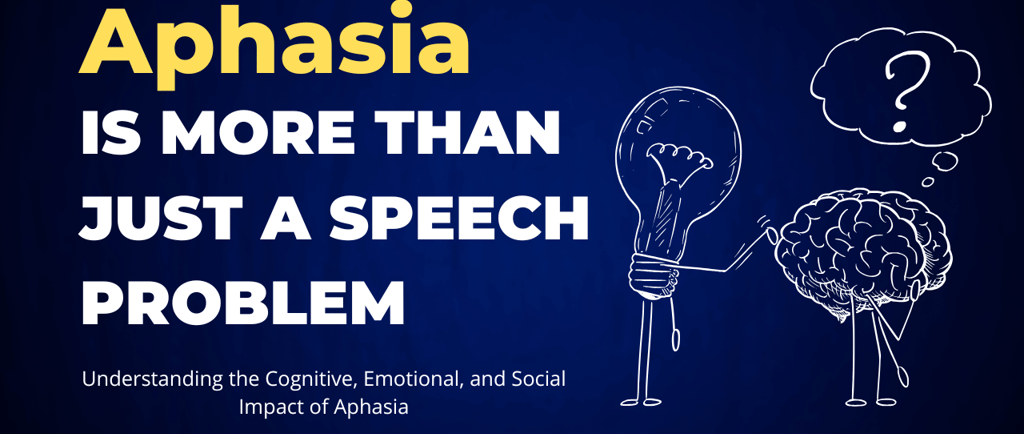Online Speech Therapy Platform
Aphasia Is More Than Just a Speech Problem
Understanding the Cognitive, Emotional, and Social Impact of Aphasia
APHASIA
Selva kumar
7/10/20251 min read


What Is Aphasia?
Aphasia is often misunderstood as just a speech or language disorder, but it’s far more complex. It is a neurological condition that affects a person’s ability to understand, speak, read, or write. Aphasia usually occurs after stroke, brain injury, or neurological illness and impacts the way the brain processes language.
🧠 Aphasia Affects More Than Just Words
While speech and language are at the center of aphasia, the ripple effects go much deeper. People with aphasia often struggle with:
🧩 1. Cognitive Challenges
Difficulty understanding instructions or questions
Trouble concentrating or remembering what’s said
Slower mental processing during conversations
💬 2. Emotional Struggles
Frustration from not being able to express themselves
Anxiety or fear during social interactions
Depression caused by isolation and loss of independence
🤝 3. Social Disconnection
Avoiding group conversations or phone calls
Withdrawing from social events or work life
Feeling “left out” because they can’t follow the flow of conversations
📉 The Impact on Daily Life
Aphasia can change everything — from ordering food at a restaurant to expressing love to family. It affects:
Relationships (struggles in communication lead to frustration on both sides)
Career (difficulty in returning to work or continuing professional duties)
Independence (relying more on caregivers for basic communication)
🧑⚕️ Why Therapy Matters
Early and consistent speech and language therapy can help retrain the brain and restore communication skills. With telerehabilitation platforms like TelloMeet, individuals can now access expert therapy from home — making recovery more accessible, convenient, and personalized.
💡 Final Thoughts
Aphasia is not just a speech disorder — it’s a whole-life disorder. Recognizing the emotional and social impact is just as important as treating the language symptoms. Let’s create more awareness, empathy, and support for those living with aphasia.
